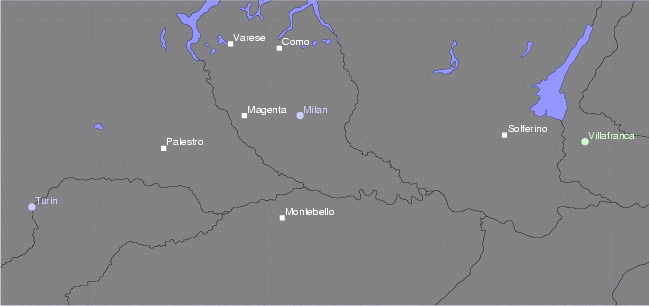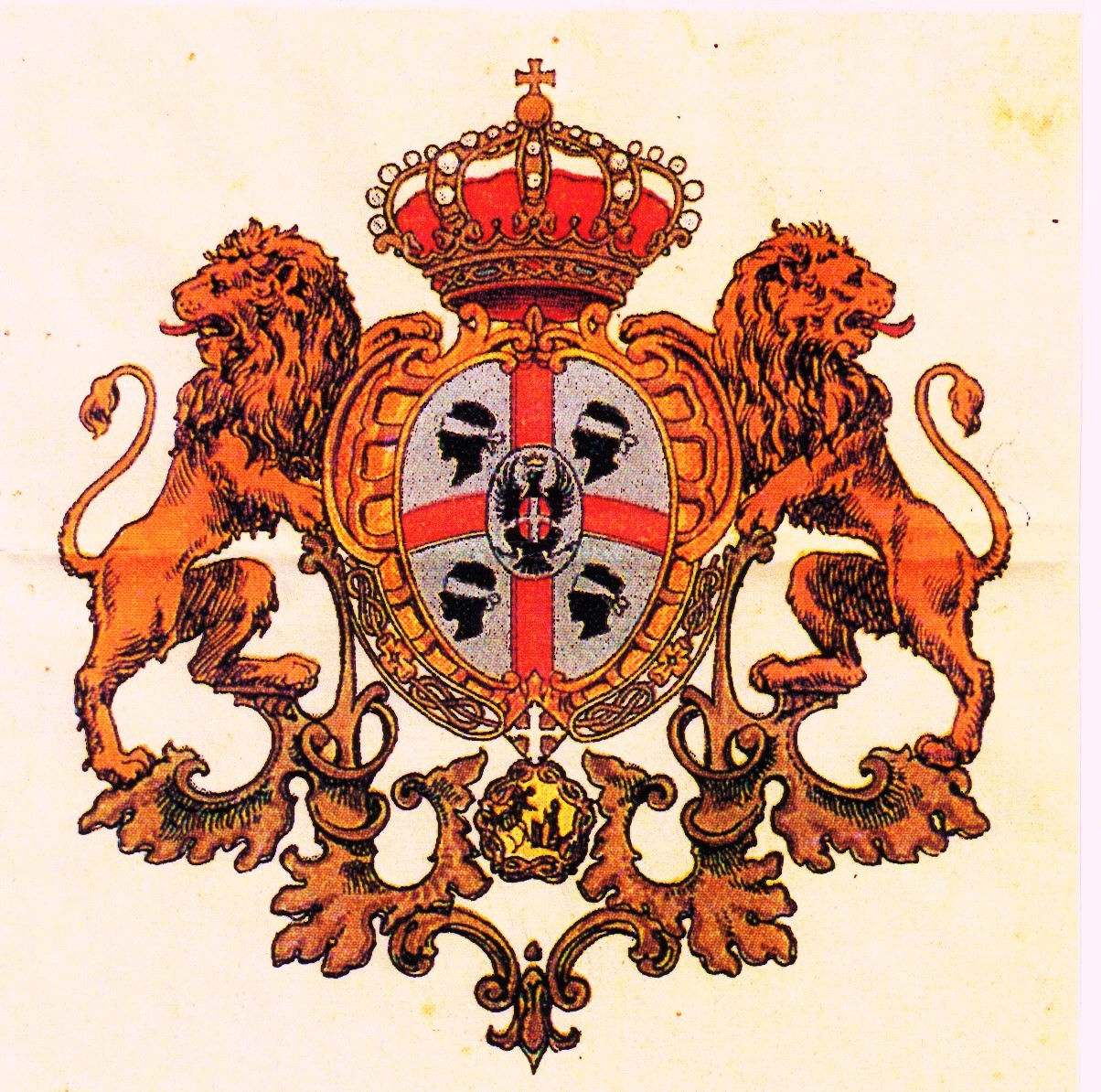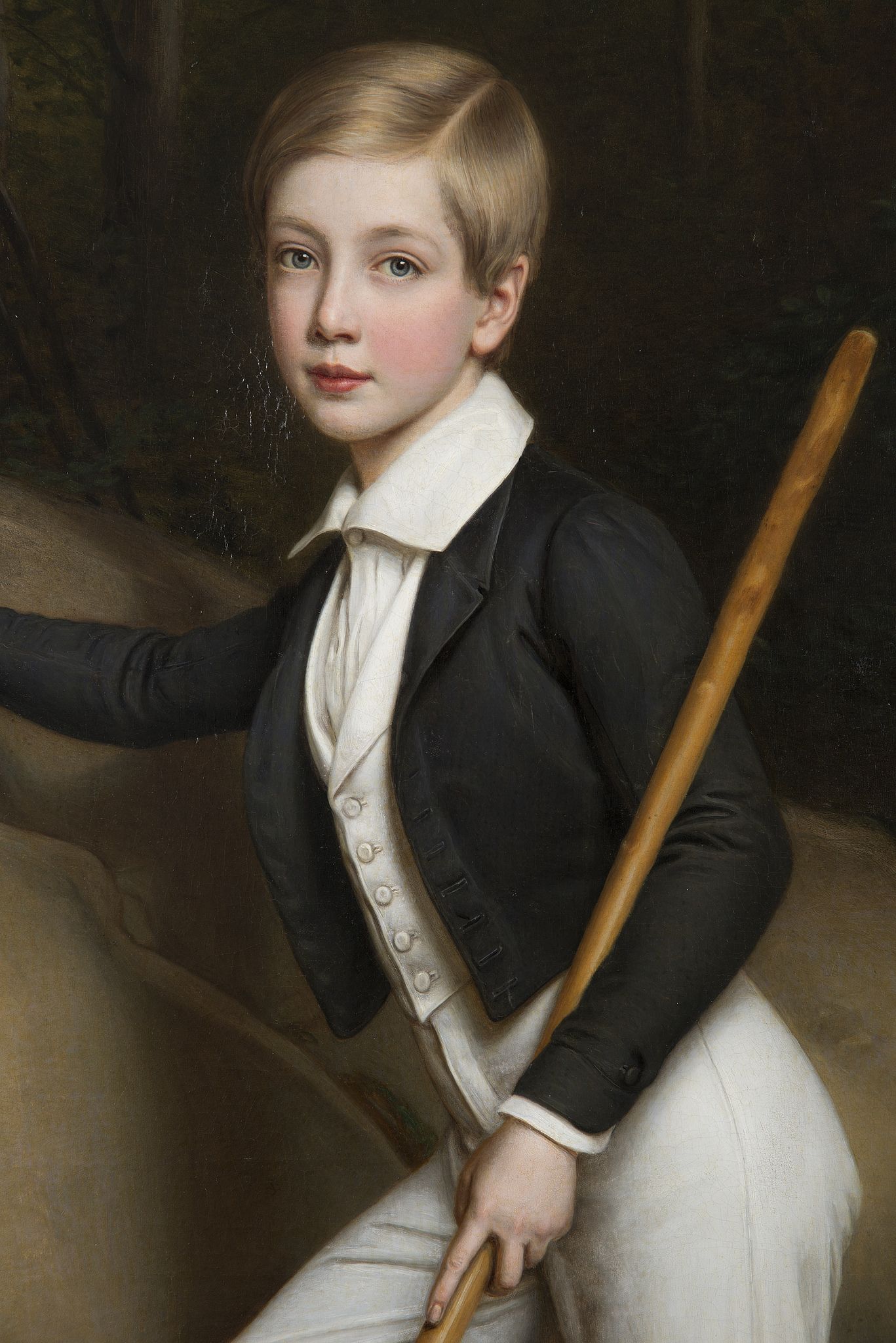|
Franco-Austrian War
The Second Italian War of Independence, also called the Sardinian War, the Austro-Sardinian War, the Franco-Austrian War, or the Italian War of 1859 (Italian: ''Seconda guerra d'indipendenza italiana''; German: ''Sardinischer Krieg''; French: ''Campagne d'Italie''), was fought by the Second French Empire and the Kingdom of Sardinia against the Austrian Empire in 1859 and played a crucial part in the process of Italian Unification. A year prior to the war, in the Plombières Agreement, France agreed to support Sardinia's efforts to expel Austria from Italy in return for territorial compensation in the form of the Duchy of Savoy and the County of Nice. The two states signed a military alliance in January 1859. Sardinia mobilised its army on 9 March 1859, and Austria mobilized on 9 April. On 23 April, Austria delivered an ultimatum to Sardinia demanding its demobilization. Upon Sardinia's refusal, the war began on 26 April. Austria invaded Sardinia three days later, and France dec ... [...More Info...] [...Related Items...] OR: [Wikipedia] [Google] [Baidu] |
Napoleon III
Napoleon III (Charles-Louis Napoléon Bonaparte; 20 April 18089 January 1873) was President of France from 1848 to 1852 and then Emperor of the French from 1852 until his deposition in 1870. He was the first president, second emperor, and last monarch of France. Prior to his reign, Napoleon III was known as Louis Napoleon Bonaparte. He was born at the height of the First French Empire in the Tuileries Palace at Paris, the son of Louis Bonaparte, King of Holland (r. 1806–1810), and Hortense de Beauharnais, and paternal nephew of the reigning Emperor Napoleon I. It would only be two months following his birth that he, in accordance with Napoleon I's dynastic naming policy, would be bestowed the name of Charles-Louis Napoleon, however, shortly thereafter, Charles was removed from his name. Louis Napoleon Bonaparte was the first and only president of the French Second Republic, 1848 French presidential election, elected in 1848. He 1851 French coup d'état, seized power by force i ... [...More Info...] [...Related Items...] OR: [Wikipedia] [Google] [Baidu] |
Kingdom Of Sardinia (1720–1861)
The Kingdom of Sardinia was the Savoyard state of the Kingdom of Sardinia from 1720 to 1861. The kingdom united the island of Sardinia with the mainland possessions of the House of Savoy. Before 1847, only the island of Sardinia proper was part of the Kingdom of Sardinia, while the other mainland possessions (principally the Duchy of Savoy, Principality of Piedmont, County of Nice, Duchy of Genoa, and others) were held by the Savoys in their own right, hence forming a composite monarchy and a personal union, which was formally referred to as the "States of His Majesty the King of Sardinia". This situation was changed by the Perfect Fusion act of 1847, which created a unitary kingdom. Due to the fact that Piedmont was the seat of power and prominent part of the entity, the state is also referred to as Sardinia–Piedmont or Piedmont–Sardinia, and sometimes erroneously as the Kingdom of Piedmont. Before becoming a possession of the House of Savoy, the medieval Kingdom of Sardin ... [...More Info...] [...Related Items...] OR: [Wikipedia] [Google] [Baidu] |
Italian Unification
The unification of Italy ( ), also known as the Risorgimento (; ), was the 19th century political and social movement that in 1861 ended in the annexation of various states of the Italian peninsula and its outlying isles to the Kingdom of Sardinia, resulting in the creation of the Kingdom of Italy. Inspired by the rebellions in the 1820s and 1830s against the outcome of the Congress of Vienna, the unification process was precipitated by the Revolutions of 1848, and reached completion in 1870 after the capture of Rome and its designation as the capital of the Kingdom of Italy. Individuals who played a major part in the struggle for unification and liberation from foreign domination included King Victor Emmanuel II of Italy; politician, economist and statesman Camillo Benso, Count of Cavour; general Giuseppe Garibaldi; and journalist and politician Giuseppe Mazzini. Borrowing from the old Latin title '' Pater Patriae'' of the Roman emperors, the Italians gave to King Vi ... [...More Info...] [...Related Items...] OR: [Wikipedia] [Google] [Baidu] |
Austrian Empire
The Austrian Empire, officially known as the Empire of Austria, was a Multinational state, multinational European Great Powers, great power from 1804 to 1867, created by proclamation out of the Habsburg monarchy, realms of the Habsburgs. During its existence, it was the third most populous monarchy in Europe after the Russian Empire and the United Kingdom of Great Britain and Ireland, United Kingdom, while geographically, it was the third-largest empire in Europe after the Russian Empire and the First French Empire. The empire was proclaimed by Francis II, Holy Roman Emperor, Francis II in 1804 in response to Napoleon's declaration of the First French Empire, unifying all Habsburg monarchy, Habsburg possessions under one central government. It remained part of the Holy Roman Empire until the latter's dissolution in 1806. It continued fighting against Napoleon throughout the Napoleonic Wars, except for a period between 1809 and 1813, when Austria was first allied with Napoleon ... [...More Info...] [...Related Items...] OR: [Wikipedia] [Google] [Baidu] |
Second French Empire
The Second French Empire, officially the French Empire, was the government of France from 1852 to 1870. It was established on 2 December 1852 by Louis-Napoléon Bonaparte, president of France under the French Second Republic, who proclaimed himself Emperor of the French as Napoleon III. The period was one of significant achievements in infrastructure and economy, while France reasserted itself as the dominant power in Europe. Historians in the 1930s and 1940s disparaged the Second Empire as a precursor of fascism, but by the late 20th century it was re-evaluated as an example of a modernizing regime. Historians have generally given the Second Empire negative evaluations on its foreign policy, and somewhat more positive assessments of domestic policies, especially after Napoleon III liberalised his rule after 1858. He promoted French business and exports. The greatest achievements included a railway network that facilitated commerce and tied the nation together with Paris a ... [...More Info...] [...Related Items...] OR: [Wikipedia] [Google] [Baidu] |
Karl Von Urban
Karl (Carl) Freiherr von Urban (English: ''Karl Baron of Urban;'' Hungarian: ''Báró Urban Károly''; French: ''Baron Carl d'Urban''; born 31 August 1802 in Kraków – died 1 January 1877 in Brno, Brünn) was an Austrian Lieutenant field marshal, Field Marshal-Lieutenant celebrated for his daring tactics of lightning surprise attacks, often against much stronger forces, which earned him the epithet of ''Austrian Garibaldi.'' He is particularly distinguished for his decisive actions during the Hungarian Revolution of 1848, Hungarian Revolution of 1848-1849, and his participation in the Second Italian War of Independence in 1859. Von Urban was the first commander to make a stand against the Revolution in Hungary, organizing the resistance and defending minorities. He captured Klausenburg, the capital of Transylvania, twice. Early years and baptism of fire Karl von Urban was born in Krakow, at the time part of the Austrian Empire, to a Sudeten Germans, Sudeten German family of ... [...More Info...] [...Related Items...] OR: [Wikipedia] [Google] [Baidu] |
Ludwig Von Benedek
Ludwig August Ritter von Benedek (14 July 1804 – 27 April 1881), also known as Lajos Benedek, with the Hungarian form of Ludwig, was an Austro-Hungarian general ( Feldzeugmeister), best known for commanding the imperial army in 1866 in their defeat at the Battle of Königgrätz against the Prussian Army, which ended his career. Early life Early years Benedek was born in Sopron as the son of a physician. He was trained at the Theresiana Military Academy in Wiener Neustadt, from which he graduated seventh in his class. In 1822, he was assigned to the 27th infantry regiment of the Austrian Imperial Army. He was made a first lieutenant in 1833, and was assigned to the Quartermaster-General. In 1835, he was promoted to the rank of captain. In 1840 Benedek was made a major and aide to the General Commander of Galicia. While still serving in Galicia he was again promoted to lieutenant-colonel in 1843. For suppressing an uprising in the town of Gdow in 1846 he was awarded ... [...More Info...] [...Related Items...] OR: [Wikipedia] [Google] [Baidu] |
Maximilian I Of Mexico
Maximilian I (; ; 6 July 1832 – 19 June 1867) was an Austrian Empire, Austrian archduke who became Emperor of Mexico, emperor of the Second Mexican Empire from 10 April 1864 until his execution by the Restored Republic (Mexico), Mexican Republic on 19 June 1867. A member of the House of Habsburg-Lorraine, Maximilian was the younger brother of Emperor Franz Joseph I of Austria. Before becoming Emperor of Mexico, he was commander-in-chief of the small Imperial Austrian Navy and briefly the Austrian viceroy of Kingdom of Lombardy–Venetia, Lombardy–Venetia, but was removed by the emperor. Two years before his dismissal, he briefly met with French emperor Napoleon III in Paris, where he was approached by Conservative Party (Mexico), conservative Monarchism in Mexico, Mexican monarchists seeking a European royal to rule Mexico. Initially Maximilian was not interested, but following his dismissal as viceroy, the Mexican monarchists' plan was far more appealing to him. Since Maxim ... [...More Info...] [...Related Items...] OR: [Wikipedia] [Google] [Baidu] |
Ferenc Gyulay
Count Ferenc Gyulay de Marosnémethi et Nádaska (, 1 September 1799 – 1 September 1868), also known as Ferencz Gyulai, Ferencz Gyulaj, or Franz Gyulai, was a Hungarian nobleman who served as Austrian Governor of Lombardy-Venetia and commanded the losing Austrian army at the Battle of Magenta. Biography Gyulay was born on 1 September 1799 in Pest, Hungary to Ignác Gyulay von Maros-Németh und Nádaska and Maria Freiin von Edelsheim. At the age of seventeen in 1816 he served as a leutnant in the 60th "Ignác Gyulay" infantry battalion. In 1820 he was transferred to the Hesse-Homburg hussar brigade as an oberleutnant and just a year after he was promoted to hauptmann of the Imperial uhlans. In 1826 he was appointed the head of the Württemberg hussar brigade and soon after in 1829 he became the oberstleutnant of the Hesse-Homburg infantry. In 1831 he was promoted to the rank of oberst and in 1838 to generalmajor. In 1846 he was already the generalleutnant of the 33rd infan ... [...More Info...] [...Related Items...] OR: [Wikipedia] [Google] [Baidu] |
Franz Josef I Of Austria
Franz Joseph I or Francis Joseph I ( ; ; 18 August 1830 – 21 November 1916) was Emperor of Austria, King of Hungary, and the ruler of the other states of the Habsburg monarchy from 1848 until his death in 1916. In the early part of his reign, his realms and territories were referred to as the Austrian Empire, but were reconstituted as the dual monarchy of Austria-Hungary in 1867. From 1 May 1850 to 24 August 1866, he was also president of the German Confederation. In December 1848, Franz Joseph's uncle Emperor Ferdinand I abdicated the throne at Olomouc, as part of Minister President Felix zu Schwarzenberg's plan to end the Hungarian Revolution of 1848. Franz Joseph then acceded to the throne. In 1854, he married his first cousin Duchess Elisabeth in Bavaria, with whom he had four children: Sophie, Gisela, Rudolf, and Marie Valerie. Largely considered to be a reactionary, Franz Joseph spent his early reign resisting constitutionalism in his domains. The Austrian Empire ... [...More Info...] [...Related Items...] OR: [Wikipedia] [Google] [Baidu] |
Alfonso La Marmora
Alfonso Ferrero La Marmora (; 18 November 18045 January 1878) was an Italian general and statesman. His older brothers include soldier and naturalist Alberto della Marmora and Alessandro Ferrero La Marmora, founder of the branch of the Italian army now called the Bersaglieri. Biography Born in Turin, he entered the Sardinian army in 1823, and was a captain in March 1848, when he gained distinction and the rank of major at the . On 5 August 1848 he liberated Charles Albert of Sardinia from a revolutionary mob in Milan, and in October was promoted general and appointed Minister of War. After suppressing the revolt of Genoa in 1849, he again assumed in November 1849 the portfolio of war, which, save during the period of his command of the Crimean expedition (where he commanded at the siege of Sevastopol and the battle of the Chernaya), he retained until 1859. This cites G. Massani, ''Il generale Alfonso La Marmora'' (Milan, 1880) He took part in the war of 1859 against Aust ... [...More Info...] [...Related Items...] OR: [Wikipedia] [Google] [Baidu] |
Giuseppe Garibaldi
Giuseppe Maria Garibaldi ( , ;In his native Ligurian language, he is known as (). In his particular Niçard dialect of Ligurian, he was known as () or (). 4 July 1807 – 2 June 1882) was an Italian general, revolutionary and republican. He contributed to Italian unification (Risorgimento) and the creation of the Kingdom of Italy. He is considered to be one of Italy's " fathers of the fatherland", along with Camillo Benso di Cavour, King Victor Emmanuel II and Giuseppe Mazzini. Garibaldi is also known as the "Hero of the Two Worlds" because of his military enterprises in South America and Europe. Garibaldi was a follower of the Italian nationalist Mazzini and embraced the republican nationalism of the Young Italy movement. He became a supporter of Italian unification under a democratic republican government. However, breaking with Mazzini, he pragmatically allied himself with the monarchist Cavour and Kingdom of Sardinia in the struggle for independence, subordinati ... [...More Info...] [...Related Items...] OR: [Wikipedia] [Google] [Baidu] |






